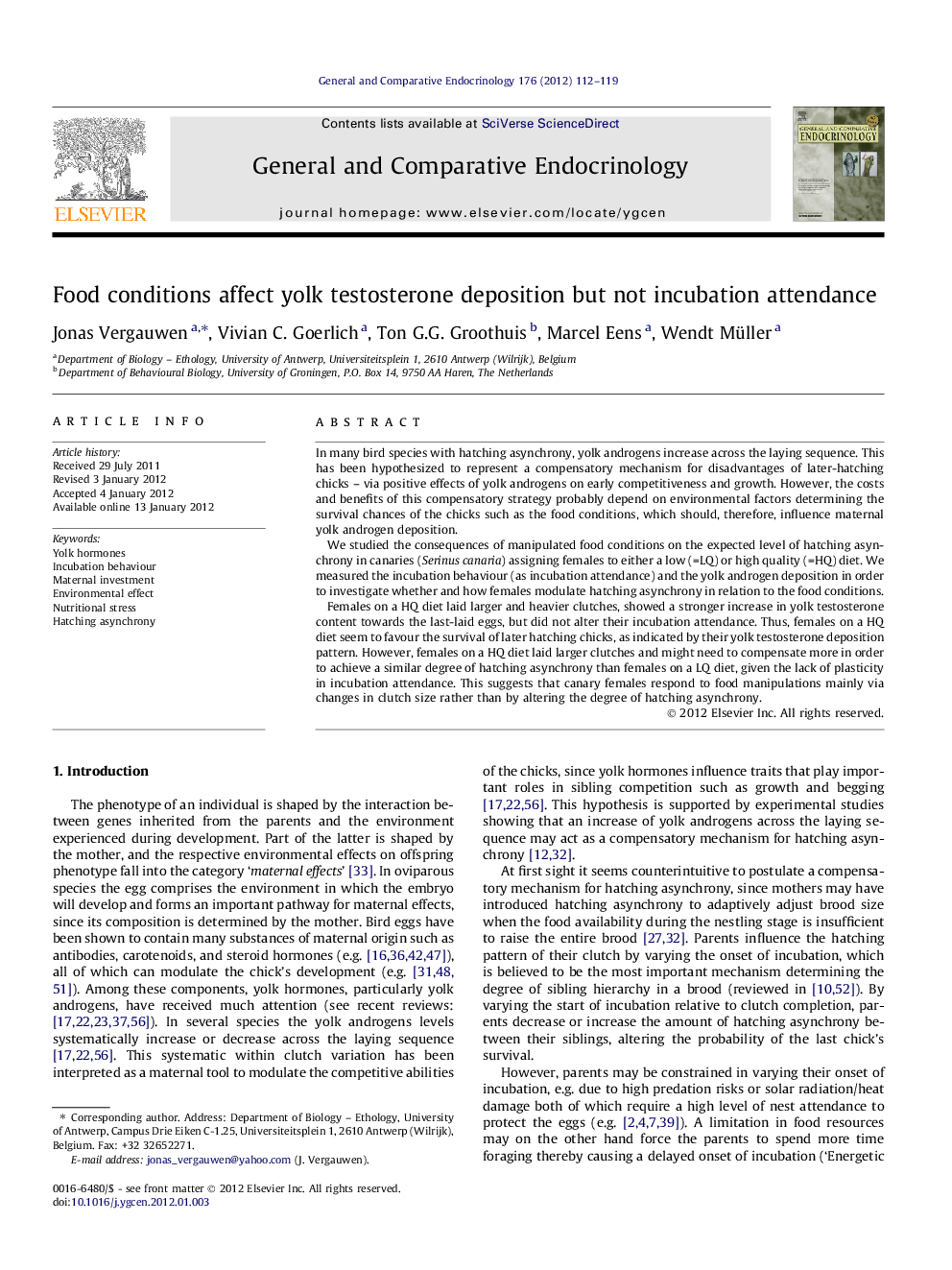| کد مقاله | کد نشریه | سال انتشار | مقاله انگلیسی | نسخه تمام متن |
|---|---|---|---|---|
| 2800560 | 1156115 | 2012 | 8 صفحه PDF | دانلود رایگان |

In many bird species with hatching asynchrony, yolk androgens increase across the laying sequence. This has been hypothesized to represent a compensatory mechanism for disadvantages of later-hatching chicks – via positive effects of yolk androgens on early competitiveness and growth. However, the costs and benefits of this compensatory strategy probably depend on environmental factors determining the survival chances of the chicks such as the food conditions, which should, therefore, influence maternal yolk androgen deposition.We studied the consequences of manipulated food conditions on the expected level of hatching asynchrony in canaries (Serinus canaria) assigning females to either a low (=LQ) or high quality (=HQ) diet. We measured the incubation behaviour (as incubation attendance) and the yolk androgen deposition in order to investigate whether and how females modulate hatching asynchrony in relation to the food conditions.Females on a HQ diet laid larger and heavier clutches, showed a stronger increase in yolk testosterone content towards the last-laid eggs, but did not alter their incubation attendance. Thus, females on a HQ diet seem to favour the survival of later hatching chicks, as indicated by their yolk testosterone deposition pattern. However, females on a HQ diet laid larger clutches and might need to compensate more in order to achieve a similar degree of hatching asynchrony than females on a LQ diet, given the lack of plasticity in incubation attendance. This suggests that canary females respond to food manipulations mainly via changes in clutch size rather than by altering the degree of hatching asynchrony.
► We studied whether canaries adjust their hatching pattern to the food conditions.
► Females responded to the food manipulation via changes in clutch size.
► They did not alter their incubation attendance when on a high quality diet.
► But they deposited more yolk testosterone to last eggs when on a high quality diet.
► Larger clutches may require more compensation for hatching asynchrony.
Journal: General and Comparative Endocrinology - Volume 176, Issue 1, 1 March 2012, Pages 112–119